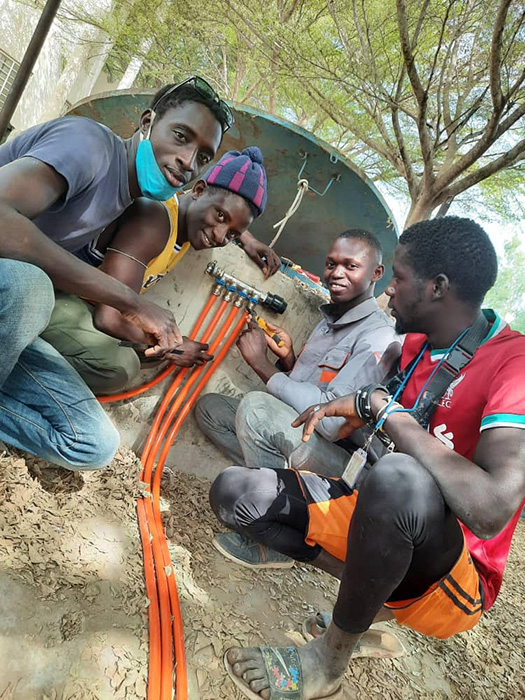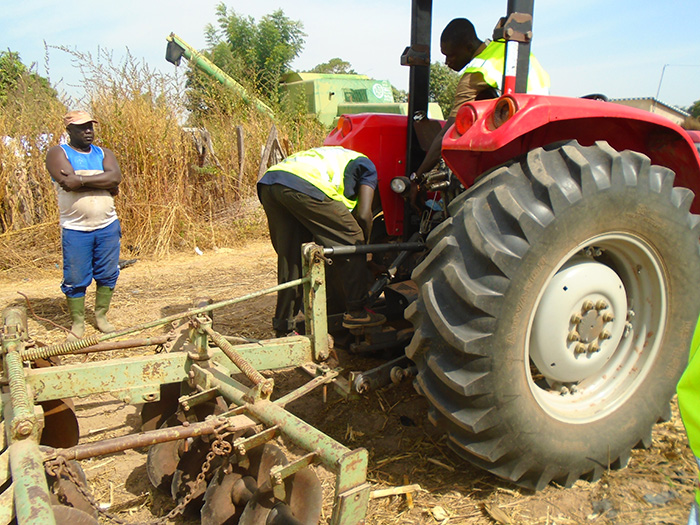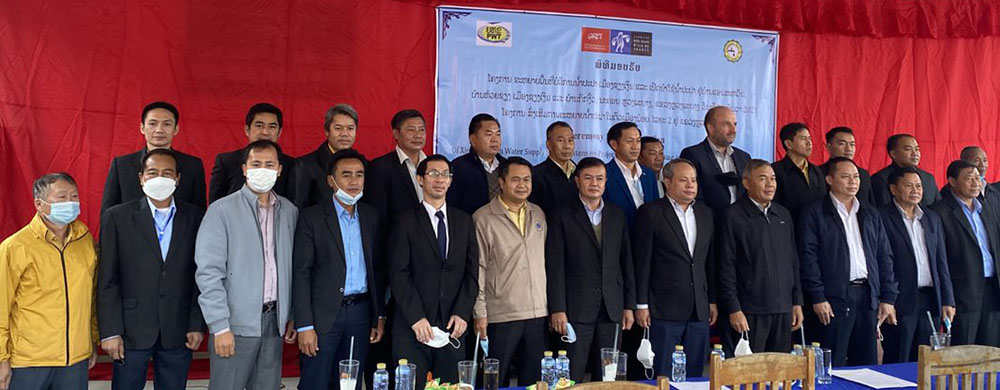The four-year QualEmploi vocational training and professional integration project, which ended in the spring of 2021, made it possible to train more than 600 young people in agriculture-related trades in the Kolda, Vélingara and Médina Yoro Foulah departments, and in the municipality of Diannah Malary in Casamance, in southern Senegal.
Launched in June 2017, the QualEmploi project – implemented by GRET, Enda Graf Sahel and Fodde, and funded by LuxDev and the European Union – developed an innovative training system, supporting both young trainees and their apprenticeship tutors, as well as delivering functional literacy activities. The apprentices were trained in growth trades in the agriculture-related sector, with a focus on four areas: cereal, fruit and vegetable processing; manufacture of tools and agricultural machinery; driving and maintenance of agricultural vehicles; and installation and maintenance of irrigation systems using photovoltaic panels.
Recognised training ensuring qualifications
In these four branches, the project teams supported the production of training and certification benchmarks, enabling a total of 463 young people to obtain a specialised vocational certificate, a diploma recognised by the Ministry of Vocational Training since 2019 and suited to short training courses (6 to 8 months). In addition, 155 of these young people benefitted from support with equipment (business start-up kits) and complementary training (personal development, initiation in entrepreneurship, drawing up of business plans, contacts with financial institutions, etc.) with a view to defining a viable professional project.
Lastly, the technical and pedagogical capacities of 148 apprenticeship tutors were strengthened, their equipment was consolidated (tools, protective equipment, etc.) and twelve workshops were rehabilitated.
Over the 46 months of the QualEmploi project’s implementation, ties were developed with eight vocational training centres (VTCs) in the regions of intervention. As key stakeholders in vocational training, these centres supported trainers with issues around theoretic teaching. The trainers from the VTCs, literacy trainers and apprenticeship tutors worked in complementary trios at the core of the training system proposed by the project for young people in Casamance.

A new project to continue providing quality training
For Assane Gueye, chairperson of the Kolda Chamber of Trades, “including the apprenticeship tutors in the vocational training course was an enriching experience, enabling the young people trained to be recognised and appreciated in the professional sphere”.
In light of the fact that apprenticeship training is a means for young people in Senegal to enjoy better professional integration, and in a favourable political context related to the law on vocational and technical training included in the Emerging Senegal Plan (2014-2035), GRET sought to continue its intervention in the region. In doing so, the central role to be played by the VTCs as architects of future vocational training through apprenticeship became evident, and is now the central element of a new project focusing on the inclusion of apprenticeship training in two vocational training centres in Kolda and Koukané. The three-year Pacifa project, launched last June, will make it possible to continue creating close ties between artisans and the VTCs in order to deliver quality training in new growth trades.
“At the end of the QualEmploi project, the fundamental question was how to capitalise on this experience and make vocational training through apprenticeship sustainable. This new project, in which the VTCs play a lead role, will enable us to better establish vocational training through apprenticeship, particularly in the agricultural sector”, says M. Dasilva, head of works at the VTC in Kounkané.

With the new Pacifa project, 200 young people will be trained through apprenticeships in trades related to the driving and maintenance of agricultural vehicles, and the installation and maintenance of irrigation systems using photovoltaic panels. In parallel, the VTCs in Kolda and Koukané will strengthen their capacities and skills for the implementation of vocational training through apprenticeship.
Find out more about:
The content of this article is the sole responsibility of GRET and can in no way be considered as reflecting the opinion of the European Union.




